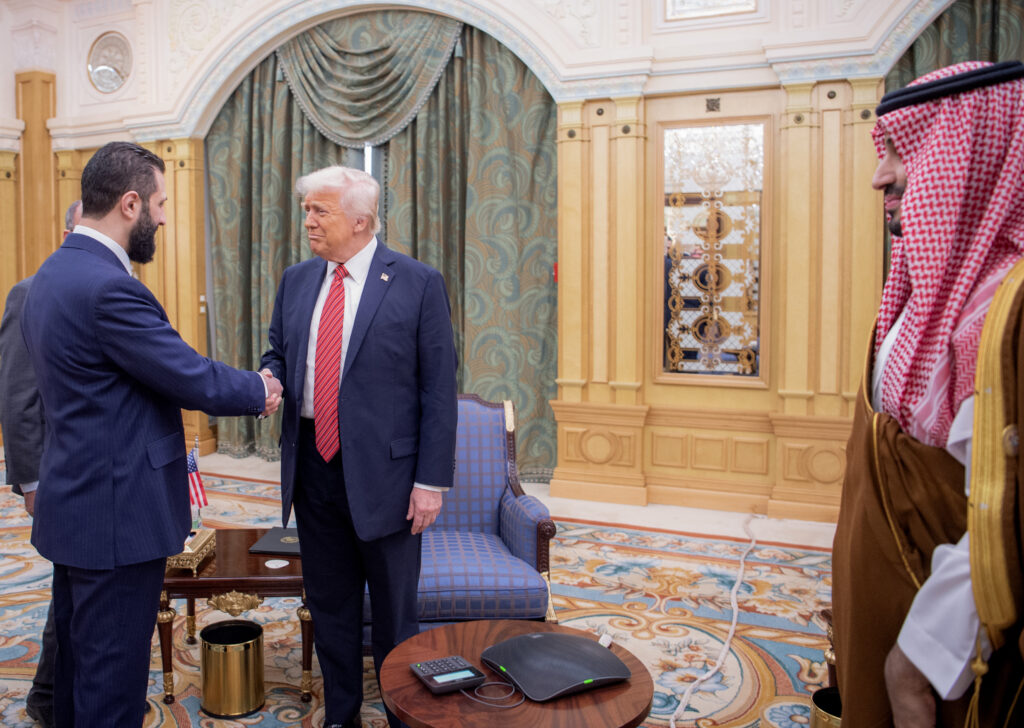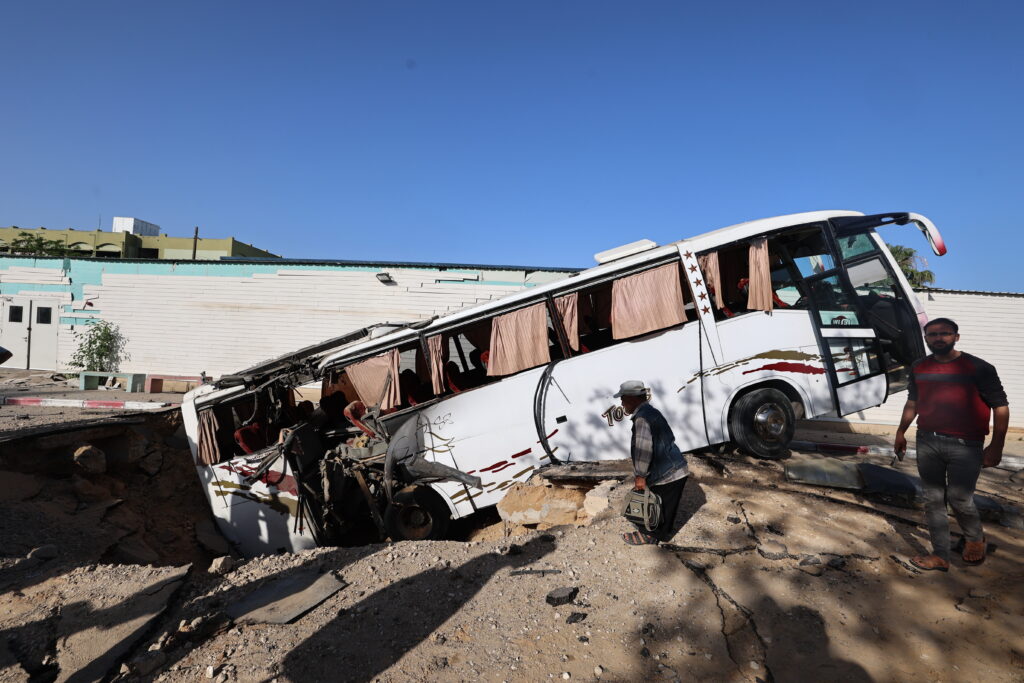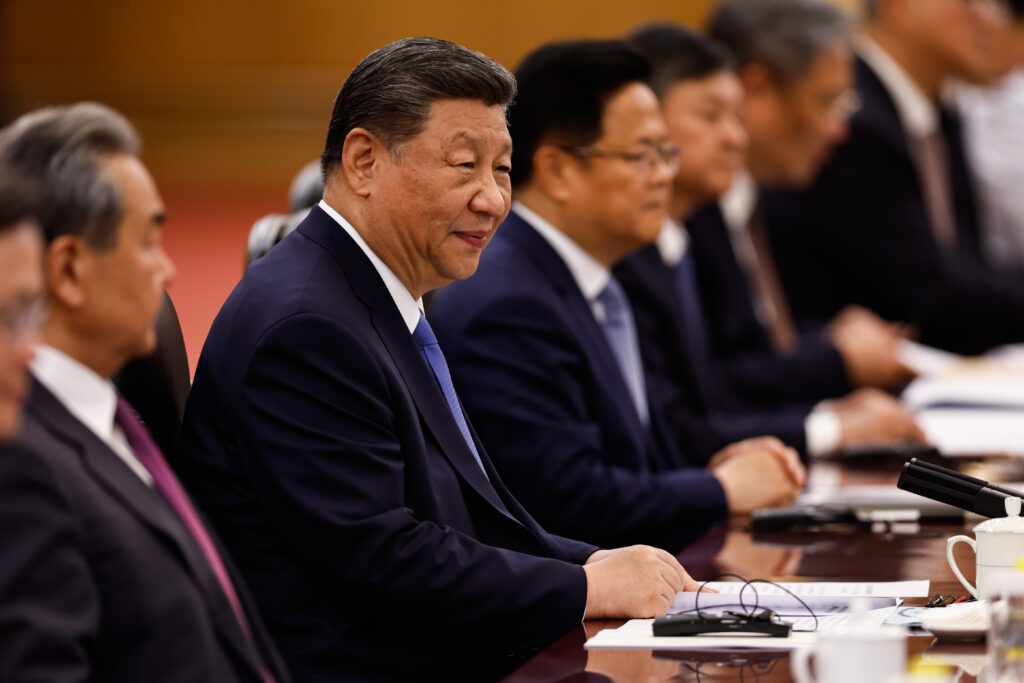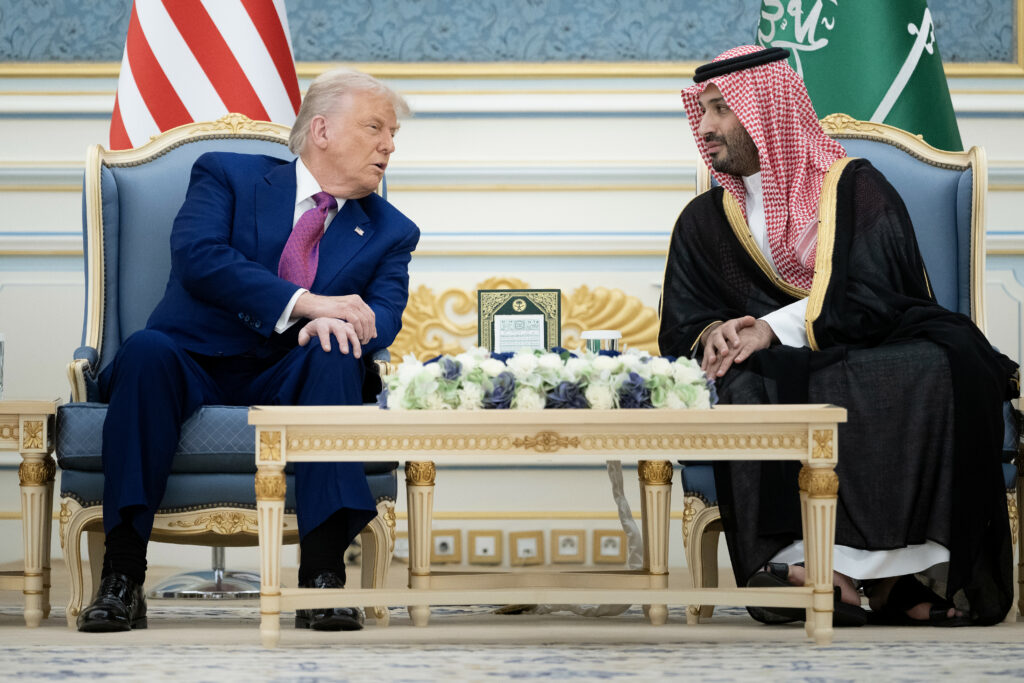Trump presses Syria leader on Israel relations after lifting sanctions
US President Donald Trump asked Syria’s new leader on Wednesday to normalise relations with Israel after he offered a major boost to the war-ravaged country by announcing the lifting of sanctions.Trump, on a state visit to Riyadh, became the first US president in 25 years to meet a Syrian leader — Ahmed al-Sharaa, an erstwhile Islamist guerrilla and onetime jihadist once on a US wanted list who led the overthrow of Bashar al-Assad in December.The interim Syrian president and Trump, wearing matching suits, shook hands as they met jointly with Saudi Arabia’s de facto leader, Crown Prince Mohammed bin Salman. and, by video link, with Turkish President Recep Tayyip Erdogan, the key supporter of the new government in Damascus.Turkey and Saudi Arabia had both advocated reconciliation with Syria but the move is the latest to put Trump at odds with Israel, which has voiced pessimism over Sharaa and ramped up strikes to degrade the longtime adversary’s military capabilities.The White House said that Trump asked the Syrian leader to normalise relations with Israel by joining the so-called Abraham Accords signed by some Gulf Arab states.Trump also asked Sharaa to deport Palestinian militants and tell foreign fighters to leave the country, as well as to take control of camps for captured Islamic State group fighters, currently run by Kurdish militants opposed by Turkey, the White House said.Syria’s foreign ministry hailed the meeting as “historic”, but did not mention the Abraham Accords. Syrian state media also did not mention normalisation.The foreign ministry said the leaders discussed “avenues for Syrian-American partnership in counterterrorism efforts” and the importance of lifting sanctions and supporting reconstruction. After the longer-than-expected half-hour meeting, Trump said the Assad-era sanctions had been “really crippling” on Syria.”It’s not going to be easy anyway, so it gives them a good, strong chance, and it was my honour to do so,” Trump said, addressing Gulf Arab leaders.- Biggest applause -The former reality television host, always attuned to crowd sizes, took note of the rapturous reception when he announced the decision at a Riyadh investment forum Tuesday.”That was the thing that got the biggest applause from the room. We had a very crowded room with thousands of people,” Trump said.After the announcement, Syrians celebrated the easing of sanctions, with dozens of men, women and children gathering in Damascus’s Umayyad Square.”My joy is great. This decision will definitely affect the entire country positively,” said Huda Qassar, a 33-year-old English-language teacher.The Syrian foreign ministry called Trump’s decision a “pivotal turning point”.The United States imposed sweeping restrictions on financial transactions with Syria during the brutal civil war and made clear it would use sanctions to punish anyone involved in reconstruction so long as Assad remained in power without accountability for atrocities.Trump gave no indication that the United States would remove Syria from its blacklist of state sponsors of terrorism — a designation dating back to 1979 over support to Palestinian militants that severely impedes investment.A senior envoy of the Joe Biden administration met Sharaa in Damascus in December and called for commitments, including on the protection of minorities.In recent weeks, Syria has seen a series of bloody attacks on minority groups, including Alawites — the sect of the largely secular Assad family — and the Druze.Rabha Seif Allam of the Al-Ahram Center for Political and Strategic Studies in Cairo said easing US sanctions would help reintegrate Syria with the global economy by allowing bank transfers from investors and from millions of Syrians who fled during the civil war.”Lifting sanctions will give Syria a real opportunity to receive the funding needed to revive the economy, impose central state authority and launch reconstruction projects with clear Gulf support,” she said.- Qatar plane controversy -Trump later heads to Qatar, which has stirred controversy by offering a $400 million luxury aircraft to serve as a new Air Force One and then go to Trump’s personal use.The move raises major constitutional and ethical questions — as well as security concerns about a foreign power donating the ultra-sensitive presidential jet.Chuck Schumer, the top Democrat in the Senate, Tuesday vowed to hold up all Justice Department political appointees in protest over the move. Qatar has been a key intermediary with Hamas, helping Washington negotiate directly the release this week from Gaza of US-Israeli joint national Edan Alexander.






